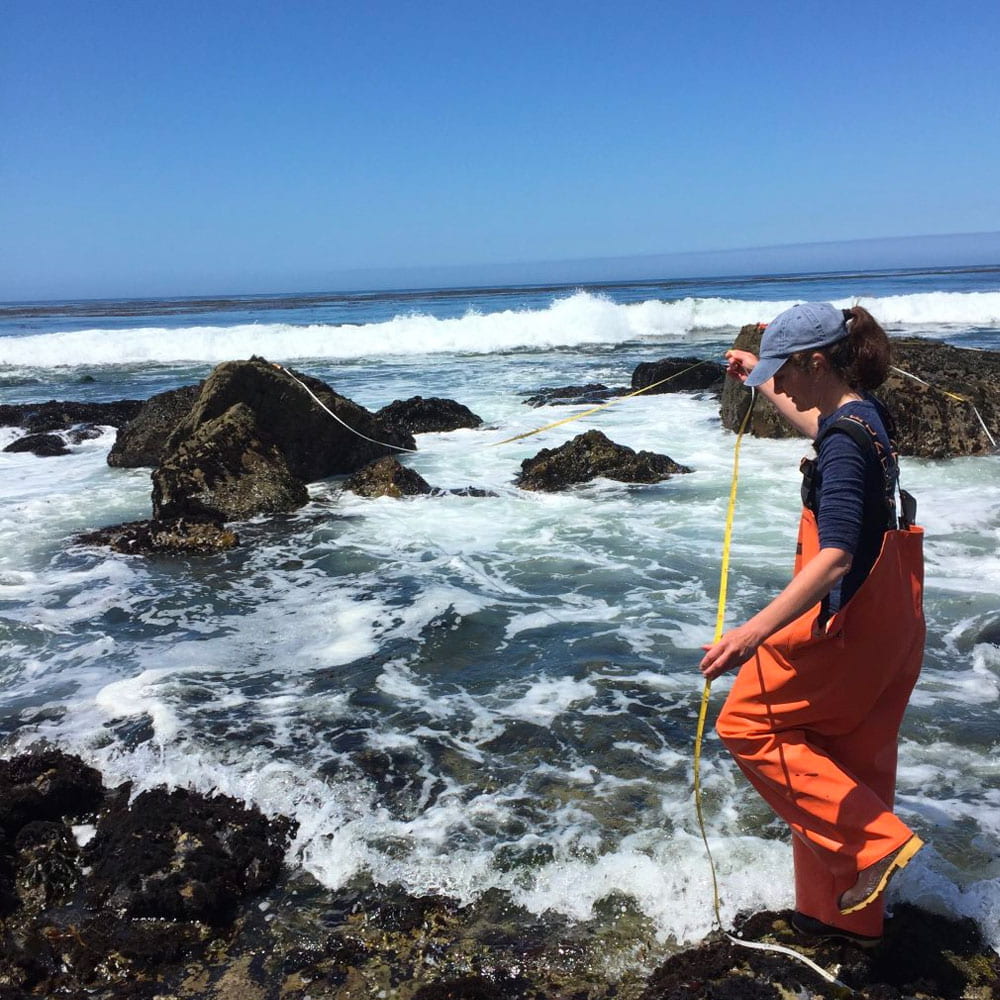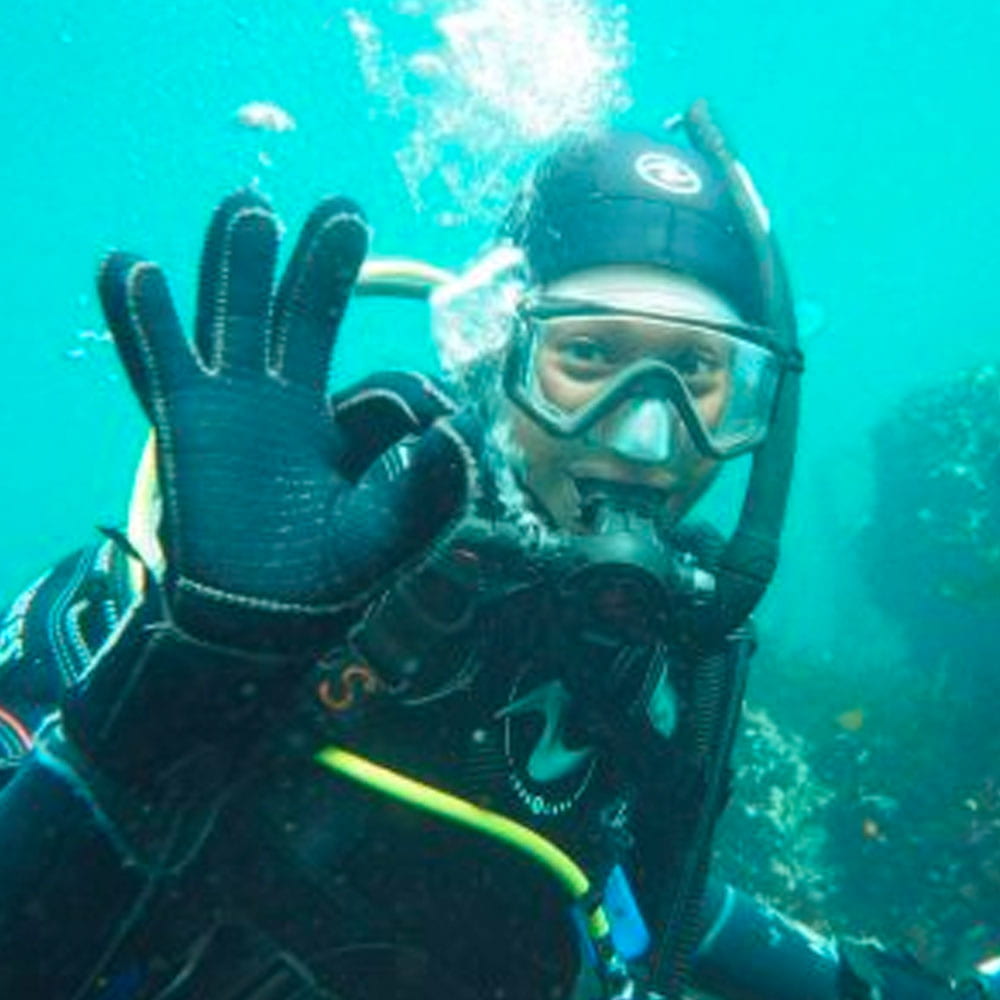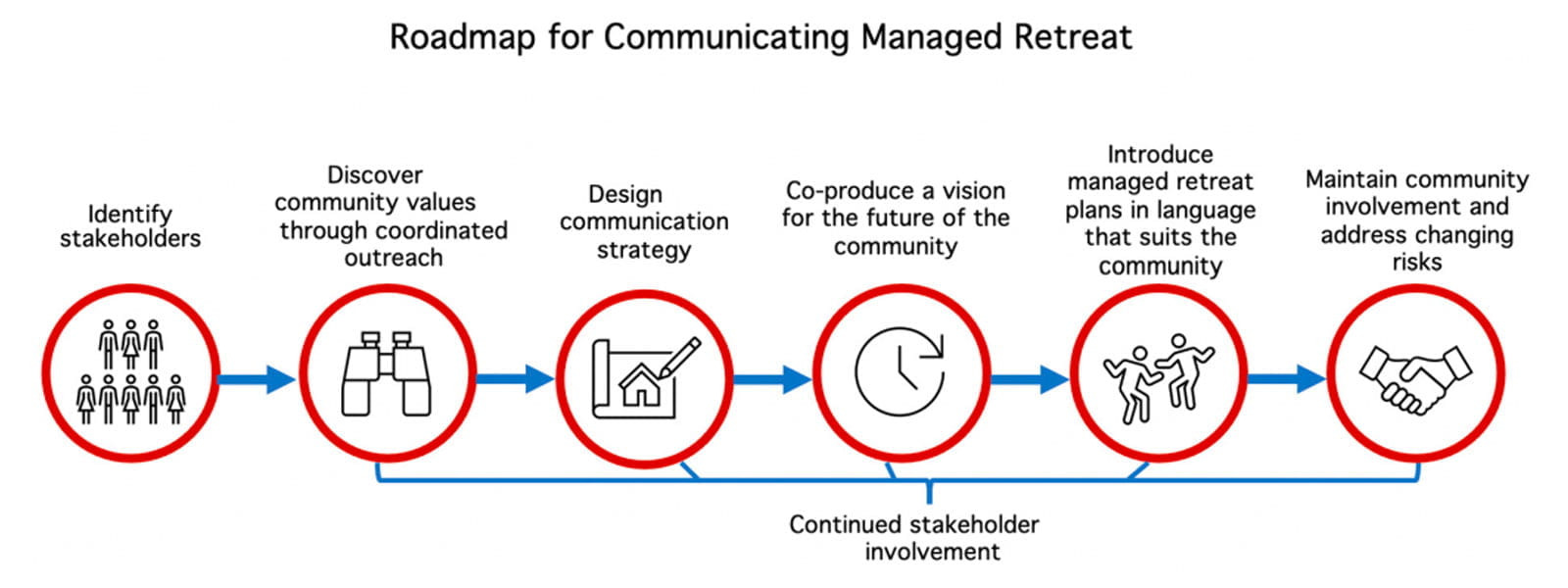E&E News features work of PhD DE Students in “No one likes ‘managed retreat.’ So it’s getting rebranded”
Wendy Bragg, Sara Gonzalez, Ando Rabearisoa, and Amanda Stoltz, each Designated Emphasis students in the Coastal Science & Policy Program recently published “Communicating Managed Retreat in California,” which shares findings from work with the City of Santa Cruz in the core course CSP 245: Adaptation & Planning. E&E News is highlighting why the term ‘managed retreat’ is so problematic.
Read the E&E news article here.
Read the students’ article here.
Published in:
Water 2021, 13(6), 781; https://doi.org/10.3390/w13060781
Abstract
California cities face growing threats from sea-level rise as increased frequency and severity of flooding and storms cause devastating erosion, infrastructure damage, and loss of property. Management plans are often designed to prevent or slow flooding with short-term, defensive strategies such as shoreline hardening, beach nourishment, and living shorelines. By contrast, managed retreat focuses on avoiding hazards and adapting to changing shorelines by relocating out of harm’s way. However, the term “managed retreat” can be controversial and has engendered heated debates, defensive protests, and steady resistance in some communities. Such responses have stymied inclusion of managed retreat in adaptation plans, and in some cases has resulted in complete abandonment of the policy review process. We examined the Local Coastal Program review process in seven California communities at imminent risk of sea-level rise and categorized each case as receptive or resistant to managed retreat. Three prominent themes distinguished the two groups: (1) inclusivity, timing, and consistency of communication, (2) property ownership, and (3) stakeholder reluctance to change. We examined use of terminology and communication strategies and provided recommendations to communicate “managed retreat” more effectively.





Andrea Paz-Lacavex
